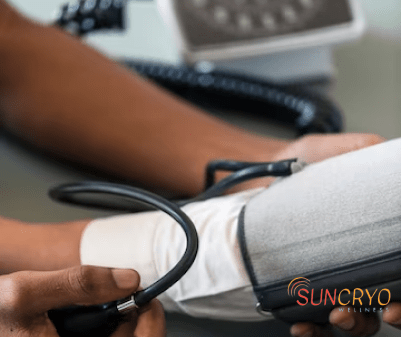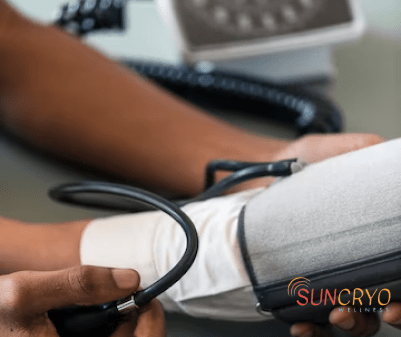Accurate Blood Pressure Measurement

In today’s health-conscious world, understanding and accurately measuring blood pressure play a pivotal role in maintaining overall well-being. On this World Hypertension Day, we delve into the significance of precise blood pressure measurement, shedding light on why it should be an essential part of your health routine. https://georgetownsuncryo.com/
The Vital Importance of Blood Pressure Measurement
Blood pressure, often referred to as the “silent killer,” is a key indicator of cardiovascular health. It reflects the force exerted by blood against the walls of arteries as the heart pumps it through the body. Accurate blood pressure measurement provides crucial insights into potential health risks, allowing for timely interventions and preventive measures.
Common Methods of Blood Pressure Measurement
- Manual Blood Pressure Measurement: This traditional method involves using a sphygmomanometer and stethoscope to listen for the Korotkoff sounds as the blood flows through the arteries. While accurate, it requires skill and can be influenced by external factors such as ambient noise.
- Automated Blood Pressure Monitors: These digital devices have gained popularity due to their ease of use and convenience. They provide automated readings that are easy to interpret and can be tracked over time, enabling individuals to monitor their blood pressure at home.
The Role of Accurate Measurement in Hypertension Management
Hypertension, or high blood pressure, is a prevalent condition that significantly increases the risk of heart disease, stroke, and other cardiovascular complications. Accurate blood pressure measurement is paramount in diagnosing and managing hypertension. Regular monitoring helps healthcare providers determine appropriate treatment plans, including lifestyle changes and medication.
Understanding the Factors Affecting Blood Pressure
Several factors can influence blood pressure readings:
- Stress: Emotional stress can temporarily elevate blood pressure. Engaging in relaxation techniques can help mitigate this effect.
- Caffeine and Salt Intake: Excessive consumption of caffeine and sodium-rich foods can lead to temporary spikes in blood pressure. Moderation is key.
- Physical Activity: Regular exercise contributes to better blood pressure control. Engaging in aerobic and strength-training exercises can lead to long-term benefits.
Tips for Accurate Blood Pressure Measurement
- Prepare Properly: Avoid caffeine, tobacco, and strenuous exercise at least 30 minutes before measuring your blood pressure.
- Sit Comfortably: Sit with your back straight and supported, feet flat on the floor, and arm at heart level.
- Cuff Placement: If using an automated monitor, ensure the cuff is positioned correctly on your upper arm. Follow the manufacturer’s guidelines for optimal placement.
- Relaxation: Stay relaxed and avoid talking during the measurement. Remain still and quiet for accurate results.
Conclusion
Accurate blood pressure measurement is a cornerstone of cardiovascular health. Whether through manual methods or automated devices, understanding your blood pressure readings empowers you to take control of your well-being. On this World Hypertension Day, let’s commit to regular monitoring and promoting heart-healthy lifestyles to ensure a healthier future.
Remember, your health is your most valuable asset, and accurate blood pressure measurement is a significant step towards safeguarding it. Let’s prioritize our well-being, making informed choices that lead to a life of vitality and longevity. https://ish-world.com/world-hypertension-day-2023/
